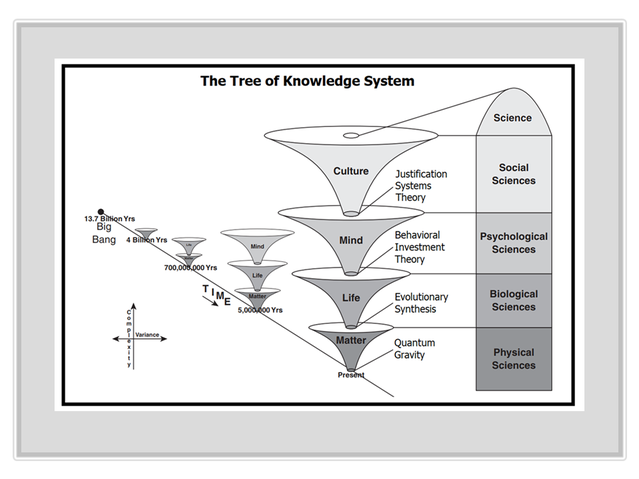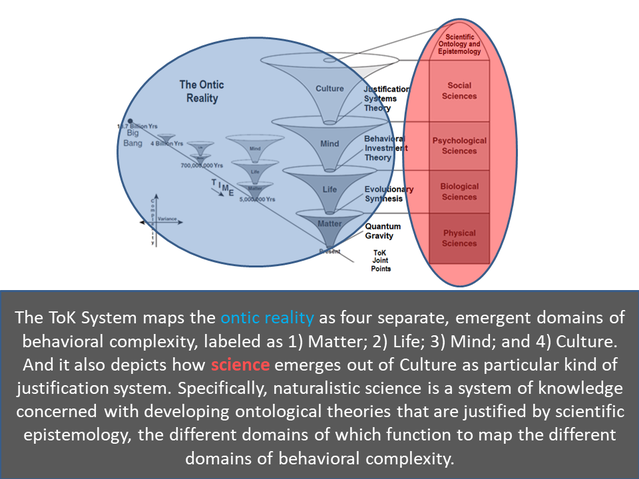Psychology
A Theory of MENS Knowledge
Updating our modern empirical natural science view of the world.
Posted July 2, 2020
What is “MENS” knowledge? It stands for modernist empirical natural science. It is also, of course, a play on words that references the fact that, as a system of justification, modern empirical natural science was largely developed by White European men (i.e., Galileo, Descartes, Newton) approximately 400 years ago. This fact relates to a postmodern critique of MENS knowledge, to which I will return.
The Tree of Knowledge System a theory of MENS knowledge. It is more properly thought of as a descriptive metaphysical metatheory of MENS. As such, it is helpful to be clear about what this means. A descriptive metaphysical approach refers to the way concepts and categories are defined and interrelated. Consider, for example, the following conceptual questions: What is behavior? What is meant by mind relative to matter? What is the relationship between socially constructed, pragmatic knowledge and analytic scientific knowledge? What is a measurement relative to an observation? What is the relationship between a human knower, groups of human knowers, and that which is "objectively" known? Or more technically, if we assume some variant of scientific realism: What is the relationship between the ontic reality and the scientific ontological claims about that reality and the epistemological methods that justify those claims? These are the questions that a descriptive metaphysical system must address.

In contrast to a descriptive metaphysics, metatheory refers to the relations between theories. Effective metatheories assimilate and integrate across the landscape of ideas that it attempts to address. For example, as a metatheory, the ToK System claims to assimilate and integrates into a coherent zoomed out picture of reality, the conceptual relationships between quantum mechanics, general relativity, Newtonian mechanics, Darwin’s theory of natural selection, modern genetics, cell theory, Skinner’s theory of behavioral selection, modern neurocomputational science, ethology, Freud’s fundamental observation about the dynamic unconscious, evolutionary psychology, modern integrative cognitive science, the major paradigms in personality and psychotherapy, and the insights from social constructionist approaches to knowledge generation.
As a theory of MENS for the 21st Century, the ToK posits that traditional modernist approaches to generating a holistic understanding of scientific knowledge were not success. That is, broad philosophical systems, from Kant to Hegel and more recently E. O. Wilson, were not effective in creating the necessary descriptive metaphysical “container” for a coherent synthetic philosophy of both reality and our scientific knowledge of it. Irrefutable evidence for this failure is found in what is called the problem of psychology. This is the fact that there is no shared meaning regarding what is meant by a science of behavior and mental process. The reason is that there was a gap of understanding in the enlightenment that pertained to how to develop a language game that could specify the definitions and conceptual relations between matter and mind and social and scientific knowledge.
The Tree of Knowledge System solves the enlightenment gap and produces a descriptive metaphysical system that defines behavior and mental processes in a clear and coherent way. And it clarifies the kind of justification system that MENS is and how and when it emerged out of culture and functions to map the ontic reality of Matter, Life, Mind, and Culture.

The failure of MENS to effectively account for both the matter-mind relationship and the social versus science relationship is also found in the postmodern critique of MENS. The postmodern critique highlights the complicated role that social forces and the social construction of “knowledge” plays in the grammar of social influence and the perpetuation and justification of the status quo and other power dynamics. Because MENS failed to produce an adequate scientific framework for psychology, it also had no way to account for the justification, investment, and influence dynamics that are operative in the construction of human knowledge and the complicated relation between discovery, invention, and power.
Thankfully, new visions of knowledge, like the ToK, are emerging in the 21st Century. Instead of being modernist or even postmodernist, many knowledge systems like the ToK (see, for example, here) are grounded in a metamodernist sensibility. Such sensibilities and systems are crucial in that we need to transition from the current state of confusion and fragmented pluralism into a state that affords much greater clarity about what is true and good and enables an integrated pluralistic sensibility that fosters the cultivation of creating a shared ethos for constructing the good society in the decades to come. As a 21st Century theory of MENS, the ToK affords a key piece of the puzzle in moving in this direction.


